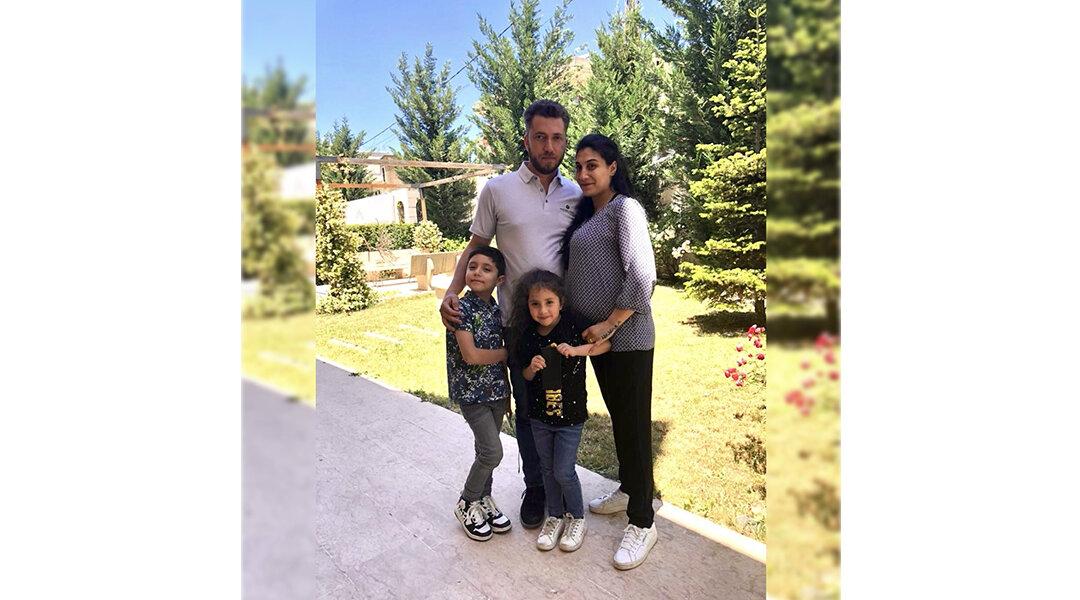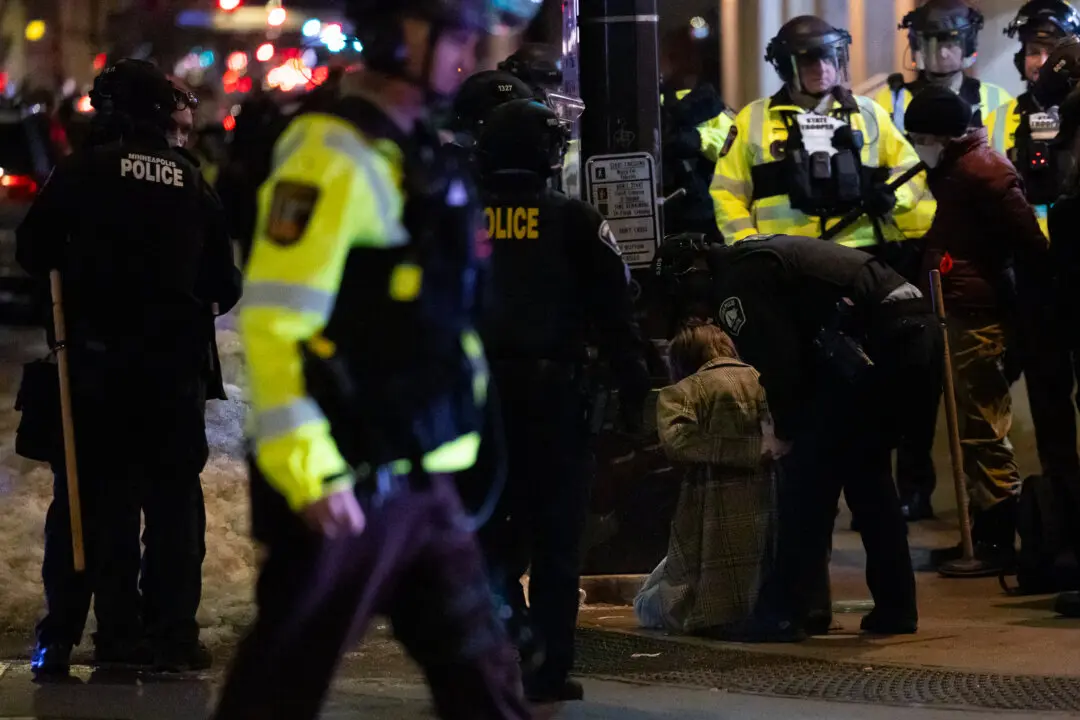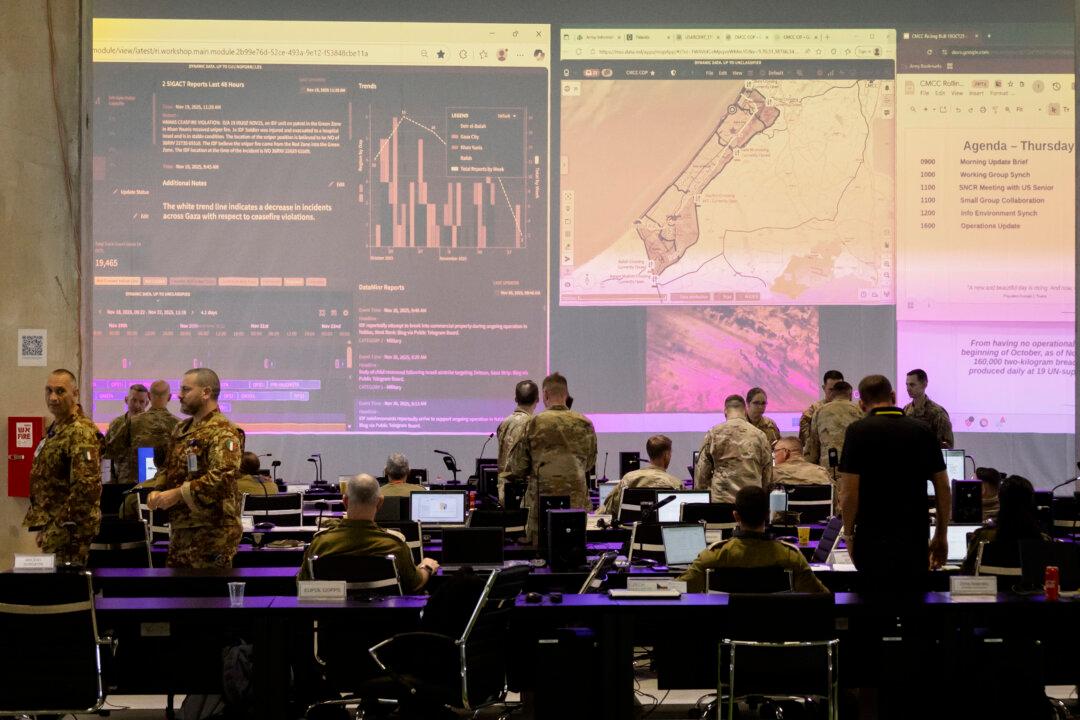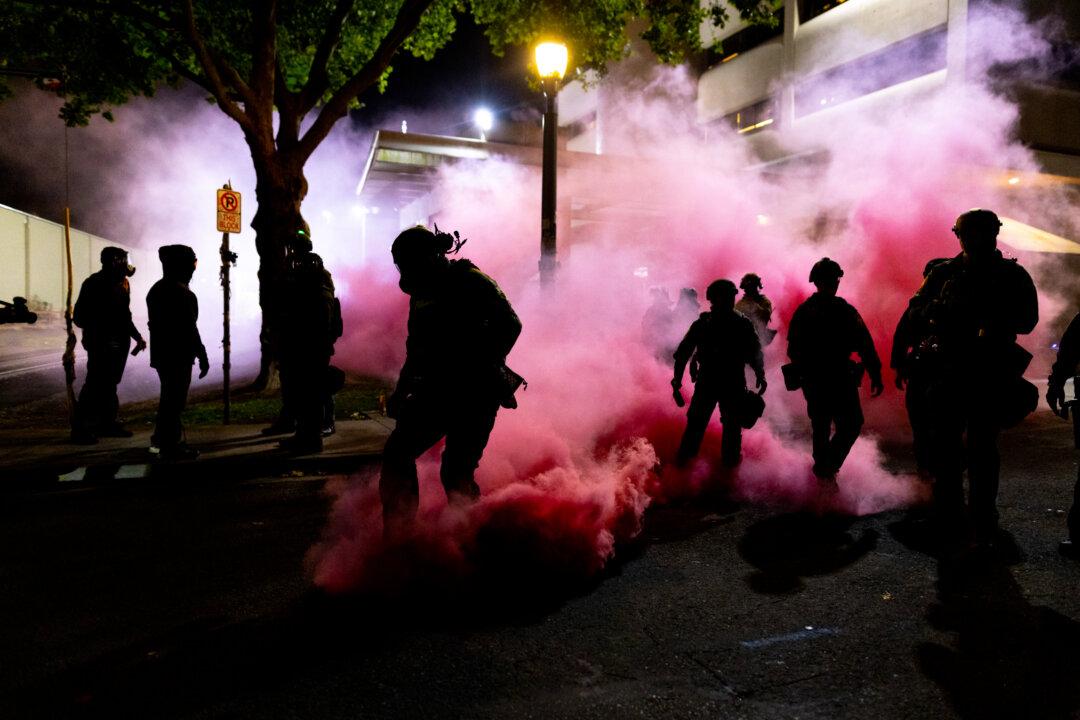American Lebanese citizen Steven Seblani, 36, of Long Beach, California, remembers turning up the music in his unfinished home in Lebanon near the Israeli border to hide the sound of bombing missions from Israeli military forces from his three children.
“Living near the Lebanon–Israeli border, we were constantly hearing the bombs going off after the Oct. 7 attacks,” Mr. Seblani told The Epoch Times. “The music was an attempt to keep my children in a ‘normal’ state at home, and decrease the fear they were having from the explosions.”




